Partners

Club Natació Banyoles (CNB) (Spain)
The club was founded in 1925 and is based in the town of Banyoles, 120 km north of Barcelona. It counts with 500 sport licenses, more than 10.000 members and 40 professional staff, covering the following sports: swimming, canoeing, rowing, triathlon, athletics, rescue & first aid, water polo and kayak / canoe polo. For the first six disciplines, CNB is affiliated to the Spanish Federation.
One of the main assets of CNB is to be located on the shore of the Lake of Banyoles, the largest of Catalonia with a total surface of 1.42 km2. This natural lake offers a unique experience for the practice of water sports and became the rowing Olympic venue during Barcelona Olympic Games in 1992. Following this Olympic election, CNB restructured its sports facilities and nowadays counts with 6.000 square meters surface, including tennis, volleyball and basketball courts, fitness, rowing & canoeing hangars, 3 different swimming pools, conference rooms, restaurant and bar, etc.
This high-quality infrastructure has allowed the club to organise several national and international competitions (World and European championships, etc.).
A total of 23 athletes of CNB have participated in the Olympic Games under different modalities.
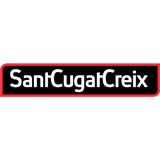
Sant Cugat Creix (SCC) (Spain)
Sant Cugat Creix (SCC) is a non-for-profit association set up in May 2014 by four sporting bodies of the municipality of Sant Cugat: Club Volleyball Sant Cugat, Club Rugby Sant Cugat, Roller Hockey Club Sant Cugat, and Junior FC Club Sant Cugat. Sant Cugat Creix is a significant promoter of this initiative, as for more than four years has been collaborating with ESADE Business School in linking sport, research and business.
In this sense, the city of Sant Cugat has a wide network of organizations involved in sports with amateur to elite professional athletes competing in the first national leagues, a centre of sports performance (Centre d’Alt Rendiment (CAR)), a powerful business sector, universities, etc. embedded within a collaborative and suitable environment to develop initiatives such as the SCORES project.
The aim of the association is:
- to represent the non-for-profit clubs of the city, and provide them with a global and comprehensive system of training from initiation categories to high-competition teams;
- Represent all its members in the defence, promotion and training in sport, as well as other collective actions for a social benefit; • Provide the city of Sant Cugat with an actor that preserves this sport model oriented to formation and training;
- Promote the visibility of the city through sport;
Sant Cugat Creix represents directly more than 3,000 athletes, 12,000 relatives, 500 coaches and more than 300 teams bringing the city name.
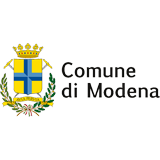
Municipality of Modena
The City Modena is the local authority governing Modena, a city of about 185.000 inhabitants located in the Emilia-Romagna Region – Northern Italy.
It is a public institution whose aims and fields of action are very varied. The City of Modena has a great sporting tradition: there are a large number of associations with the highest quality that collaborate with the government to ensure that citizens offer quality sports and full of opportunities. Moreover, the city believes that sport is essential for healthy lifestyles, an extraordinary tool for social cohesion and therefore an important part of the welfare for its own community.
The Municipality of Modena owns about 75 sporting grounds, including 33 indoor gyms, 14 football fields, 3 multi-purpose indoor courts, an indoor track and field facility, a sport center, a football field approved for UEFA cup competitions, a rugby and a baseball stadium, two swimming facilities with 7 pools overall (two 25-metre pools, one 50-metre pool and other pools for schools and fitness activities).
Sport facilities are managed by sporting associations, who use them to offer a range of disciplines to the general public, from the most popular sports like football and volleyball, basketball, fencing, track and field, artistic gymnastics to less popular sports such as archery, baseball and martial arts.
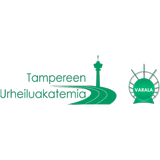
Tampere Sports Academy
Tampere Sports Academy is a local network of sports operators in western Finland coordinated by Varala Sports Institute’s Training Center and steered by The Finnish Olympic Committee.
The Finnish Sports Academy Network is steered by the Finnish Olympic Committee and its main goal is to support athletes’ Dual Career and possibilities to combine sports career with other aspects of life (e.g. studying, work life) in every phase of athlete’s career. There are 20 Sports Academies in Finland of which Tampere Sports Academy (later TSA) is one of the biggest after the Academy in Helsinki Metropolitan Area. TSA was established in 2008 when Finland’s oldest Sports Institute Varala (Founded 1909) took the coordinating responsibility for the Sports Academy in Tampere area. Currently there are over 1,000 athlete members from 50 sports in Academy from primary school to professional athletes. The main sports are ice-hockey, judo, track and field, boxing, canoeing, football, Finnish baseball, gymnastics, basketball, volleyball, floorball, tennis, wrestling and figure-skating. TSA has heavily invested in promoting and developing injure prevention and healthy sports through the Healthy Athlete Program (www.terveurheilija.fi).
The program promotes coaching and guidance that will foster the good health and prevents injuries of young athletes and children who take part in sports.
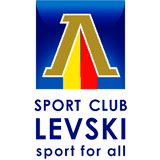
LEVSKI-SPORT for ALL (LSC) (Bulgaria)
The club is named after Vasil Levski, the national hero of Bulgaria. Founded in 1914, Levski Sofia has been for a century leader in the sport movement in Bulgaria, with 35 sport sections and being the Bulgarian club with most results at European level.
Levski Sofia is the only Bulgarian club to have won the European Champions’ Cup in three different team sports – basketball, volleyball and athletics. To date, the club has reached 25 European club Finals (won eight titles) – one EuroLeague, one CEV Champions League, two European Champion Clubs Cup (athletics) titles, two EuroCup titles, and two Balkan League titles; and played in (17 finals) – four CEV Champions League Finals, two European Champion Clubs Cup (athletics) Finals, six CEV Cup Winners’ Cup Finals, one EuroCup Final, two Balkan League Finals, and two Balkans Cup Finals.
The athletes of sport club Levski have won almost 1,000 medals in their history: they have won 370 World Championship medals (107 golden), 474 European Championship medals (159 golden) and 83 Olympic medals (15 golden).
The SC “Levski – Sport for all” is founded as a sport section in the multisport club “Levski” – Sofia.
Specialized in the grassroots sports and events.
It is a member of theEuropean multisport club association; the Bulgarian school sport association; and the Bulgarian sport for all association.
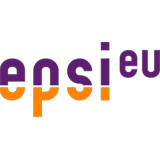
European Platform for Sport Innovation (EPSI) (Belgium)
EPSI is a base-networking organisation within Europe that strives for a more innovation-friendly environment for the EU’s sports industry. EPSI has embraced a cross-sectoral approach, which covers the health, economic, social and cultural dimensions of sport, and it has cooperated with a growing number of partners, including universities, research institutes, clusters, industries and organisations.
EPSI is created with the aim to initiate and kick off activities among its members to respond to regional, national and European industrial and societal challenges. This leads to projects with the aim of finalising and deploying innovation and contribute to the dissemination of new knowledge, product and services into society. The platform on itself focuses on physical activity related to sport leisure and health. EPSI is at EU level the partner of the sport sector to stimulate and strengthen the innovation potential of academic and industrial stakeholders and especially SMEs. It also provides access to an increasing network of sport Field Labs for creation, development and evaluation of sport products and services. EPSI is partner of the House of Sport which gathers 23 partners throughout Europe.
EPSI counts amongst its constituents a great variety of members amongst which there is Assosport and VSSÖ which represent respectively the Italian and the Austrian Sporting Goods Industry association with some 500 affiliated companies, These companies can be defined as both suppliers and retailer operating in the 3 main sport sectors i.e. textile / apparel; footwear and hardware with a majority of members coming from small and medium sized enterprises as opposed to big multinational.
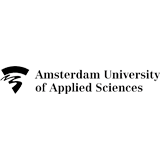
Amsterdam University of Applied Sciences (AUAS) (The Netherlands)
The Amsterdam University of Applied Sciences (AUAS) is based in The Netherlands, in the city of Amsterdam.
AUAS has a long history with elite sports and education.
Since the end of last century, it has been the leading institution in The Netherlands in developing flexible study possibilities for elite athletes or athletes with special requirements. In 1999 in cooperation with the world-renowned footballer Johan Cruijff, AUAS started the Johan Cruyff University (JCU), with the specific ambition of supporting the education of elite athletes. Over the years, a vast amount of athletes have successfully completed their education whilst simultaneously developing successful sporting careers (for instance 26 JCU student athletes participated in the 2012 Olympic or Paralympic Games in London and overall success rates in education are comparable with non-elite athletes).
In 2004, the AUAS was responsible for the implementation of the DC policy at vocational schools in Amsterdam. This implementation is at the moment spread out over the Netherlands across many other educational institutes.
